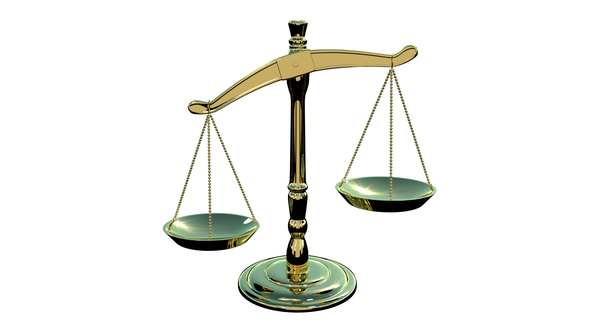Off-Balance
Amidst limited interactions, virtual schooling, social chaos, and shifting economic realities we find ourselves scrambling for whatever gives a sense of balance across such delicate scales. Finding such balance is an astonishing feat that involves trying to equally divide thoughts and energies across all daily roles and responsibilities. But, is such a division entirely necessary as we learn things that can be applied to all areas of life? With this question in mind, let us contemplate balance as something achieved through recognizing disparities, finding explanations, and reconciling issues. Or, to put it differently, being able to identify problems and formulate solutions by way of knowledge, skills, and personal experience. From this understanding of balance, we can begin to search for places to build bridges across our roles and responsibilities allowing for a sense of stability to be achieved. So, acknowledging our troubles, how we believe they are created, and discerning the similarities and differences between our lives and the lives of those around us produces a firm foundation that is not easily moved by perilous uncertainties.
When continuing to examine balance, one may find that stress plays a compelling part in the process. So much so that God tells us to keep our hearts with all diligence because out of it springs the issues of life (Proverbs 4:23). The heart (what holds our beliefs, values, wants, and desires) is the root of all discontent within one’s life. From this perspective, the heart is the scale on which a person determines the value of all things in their life with stress tipping the platforms at every opportunity. Despite the negative effects mental, emotional, and physical strain may cause, stress can also initiate a focus capable of helping a person escape affliction and overcome challenges. This focus is derived from how tension is handled or from how an issue is perceived in comparison to one’s ability to resolve it. Another way to look at is that guarding the heart generates that focus which enables balance due to the manner in which a problem is approached.
In the eyes of God, believers are to approach all things from a position of love (1 Corinthians 16: 14). From such a position, one should let their beliefs, values, wants, and desires be led by God and His love across family life, community, and career. With our minds on the subject of love, let us turn again to our hearts to lead us with a determined focus on a search for balance. God lets us know that, “out of the abundance of the heart the mouth speaks” and “where your treasure is, there your heart will be also” (Matt. 12:34; Matt. 6:21), continuing to show us how the condition of the heart is reflected in the condition of life. To further explore the heart, focus, and balance let us consider how we choose to perceive problems and work out solutions.
There is no question that we encounter problems at home, in our communities, and at work. The real issue is finding the thread that ties all of these problems together. To properly search out this thread, let us ponder a few questions:
- Why do you think there is a problem?
- What is happening?
- When is it happening?
- Where is it happening?
- Why is it happening?
- Who do you believe is involved?
A proper examination of sin shows us the origin of our problems as well as the source of our solutions. In Genesis 3 we all became sinners through the sin of Adam. The spiritual death that resulted left us to continually wandering aimlessly through our own distorted fantasies with only more sin, evil, and death to look forward to. However, sin is not meant to be our plight. In Genesis 4: 6-7 God portrays our relation to sin:
So the Lord said to Cain, "Why are you angry? And why has your countenance fallen? If you do well, will you not be accepted? And if you do not do well, sin lies at the door. And its desire is for you, but you should rule over it.
Although the sin of Adam subjected all of creation to the curse of sin, there is still hope. Let us consider these verses:
For He made Him who knew no sin to be sin for us, that we might become the righteousness of God in Him. - 2 Corinthians 5: 21
My little children, these things I write to you, so that you may not sin. And if anyone sins, we have an Advocate with the Father, Jesus Christ the righteous. And He Himself is the propitiation for our sins, and not for ours only but also for the whole world. - 1 John 2: 1-2
He who sins is of the devil, for the devil has sinned from the beginning. For this purpose the Son of God was manifested, that He might destroy the works of the devil. Whoever has been born of God does not sin, for His seed remains in him; and he cannot sin, because he has been born of God. In this the children of God and the children of the devil are manifest: Whoever does not practice righteousness is not of God, nor is he who does not love his brother. For this is the message that you heard from the beginning, that we should love one another, not as Cain who was of the wicked one and murdered his brother. And why did he murder him? Because his works were evil and his brother's righteous. - 1 John 3: 8-12
So, thinking through all that was discussed, we can understand how putting sin into perspective can give us balance in life. A balance established because our heart and focus is given to Jesus. I pray that this blesses you and brings you to Jesus when you find yourself stumbling over problems in life.
Darnell Sheffield

.jpg)
.jpg)
Comments
Post a Comment